|
|
Last Modified on Mar 02, 2022
Buying (or selling) a home is challenging but not impossible. There will be hurdles along the way, moments of panic and stress, and last-minute calls with your lawyer, agent, and lender. Knowing that you are that close to the finish line, sitting down at the closing table can feel like a tremendous relief.
If you are new to the homebuying process, you may have questions about what closing will be like. Do I need to bring money? Is it another piece of the process that I need to worry about? Here’s what it will be like:
The Finish Line
The closing process is the culmination of weeks or months of hard work. Everyone has to do their part for this to happen—you, your attorney, lender, and real estate agent. It takes an active effort to get a house to close on a timeline. Your attorney and/or real estate agent will likely contact whoever is lending you the money. Their job is to ensure that the process is on schedule and everything is set for you to close on time.
If you are buying a home, you will sit down with an attorney to go over and sign documents. Buyers almost always attend the closings in person, whereas sellers may sign the documents ahead of time. North Carolina requires all notarized documents to be signed physically in the presence of a notary, so no, you cannot “e-sign” any of your notarized documents.
The Elements of a Closing
In North Carolina, real estate closings are the function of an attorney—so there will be a supervising attorney at your closing. When you get there, there will be a lot of paperwork involved. These are the closing documents that your attorney has prepared. They are official documents that get recorded with the Register of Deeds.
As a buyer, your attorney will complete a title search. This ensures you can own the property free and clear of other creditors and claims to it. You will see the history report on the property when you close. Depending on your engagement letter and the scope of representation, your attorney may go over local zoning laws and restrictions with the property.
Other Documents
Next, you will see a Closing Disclosure—and you will need an updated one right before the closing. An attorney may go over this entire document with you to fully understand the charges associated with the closing (e.g., down payments, escrow). Additionally, in North Carolina, your marital status impacts how you can hold title. So don’t be surprised when that question surfaces.
Though you may already know this, you will have to pay back the loan. Furthermore, you will commit to doing this in writing by signing a Promissory Note. The other very important legal document is the Deed of Trust. Simply put, it explains that if you cannot pay back the loan, you cannot stay in the home.
Thomas & Webber Law at the Lake
In addition to everything we mentioned, you need to sign paperwork from your lender. Are you expected to have a command of each of these documents? Of course not. At Thomas & Webber Law at the Lake, we explain each of these documents. When we are at the closing table with you, we want you to know what you are signing while also enjoying this milestone in your life. Contact us to schedule a consultation to meet with a real estate attorney.





